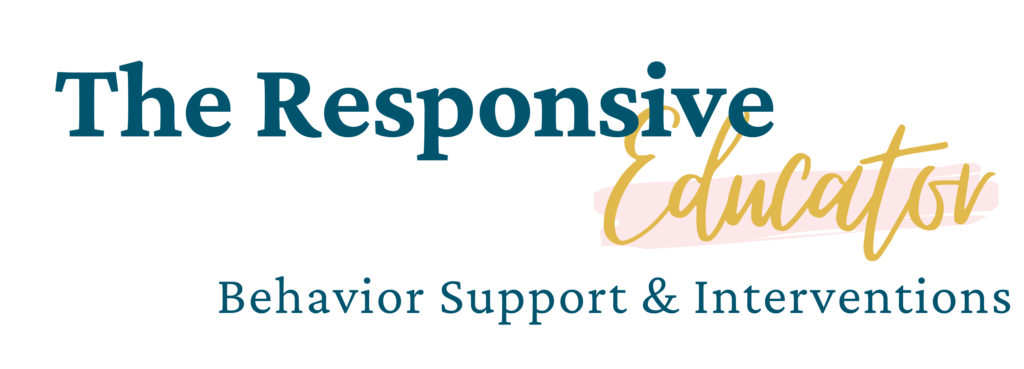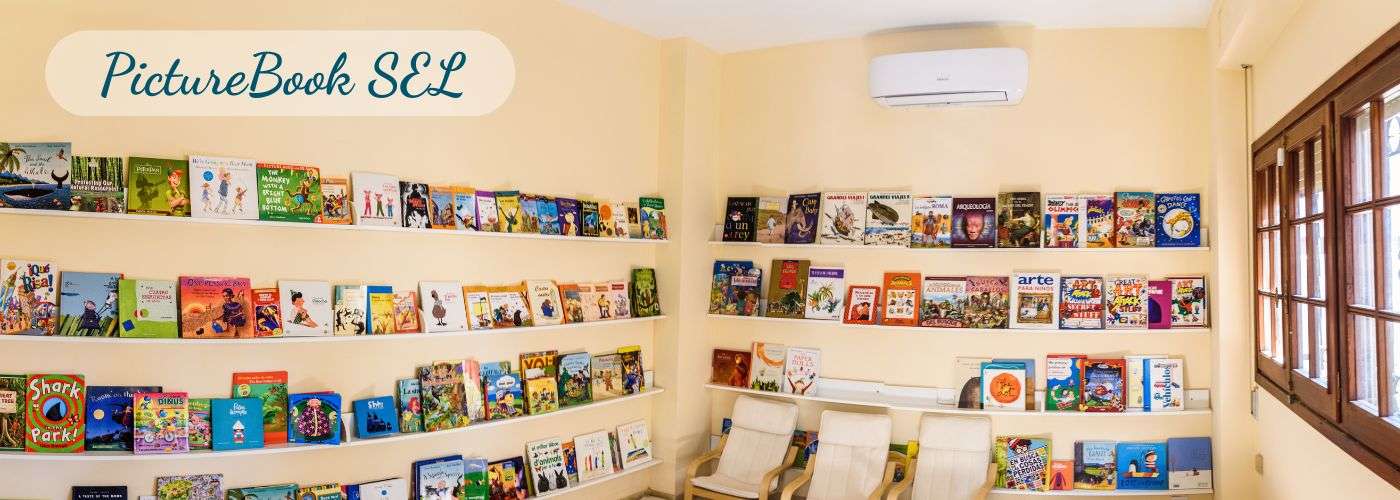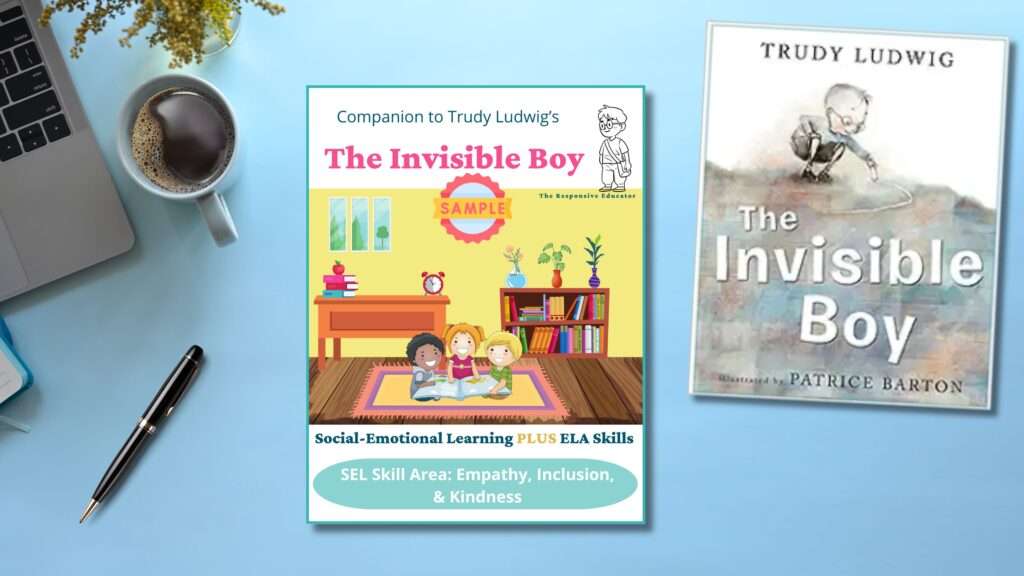


Executive functioning skills are the mental processes that help children manage time, stay organized, plan ahead, follow multi-step directions, and regulate their behavior. These skills are foundational for learning—and for life—but they don’t come naturally to all kids. For many students, especially those with ADHD, autism, or other learning differences, executive functioning can be a daily struggle that affects both academic success and social relationships.
Picture books can be a powerful way to introduce and reinforce these skills in developmentally appropriate, engaging ways. Through relatable characters and realistic situations, children can learn strategies for staying on task, organizing their materials, managing time, and more.
When it comes to books that teach executive functioning skills, one author comes up again and again: Bryan Smith. His Executive FUNction series covers a wide variety of essential skills—from self-monitoring and planning to task initiation and organization. These skills are crucial for many students, and his stories have been the most helpful and engaging I’ve found in this category.
While this list does include several of Bryan Smith’s titles, it’s not because I set out to highlight just one author. It’s simply a reflection of what’s available and effective. That said, I’m always looking to grow my list of high-quality resources. If you know of other picture books that support executive functioning in meaningful, age-appropriate ways, I’d love to hear from you—feel free to reach out or leave a comment with your suggestions!
For some of the book on this website, I have created interactive read-alouds to enrich their use in the classroom. These interactive read-alouds include discussion questions, activities, and prompts that engage students and deepen their understanding of the book’s themes. More interactive read-alouds are on the way. If there are specific books for which you would like to see a read-aloud created, please contact me using the form at the bottom of the page.
To learn more about supporting social-emotional learning and using interactive read-alouds in the classroom, check out these posts:
(As an Amazon affiliate, I earn a small commission if you purchase products through the links on my posts. Thank you for your support!)
Summary: Braden rushes through his daily tasks—whether it’s chores, quizzes, or classroom responsibilities—without stopping to double-check his work. When his carelessness leads to repeated mistakes, his parents and teacher introduce a step-by-step strategy for self-monitoring. Braden slowly learns how to slow down, reflect, and follow through more carefully.
Description: This book tackles self-monitoring, a foundational executive function skill. It addresses issues like impulsivity, task completion, and careless errors, helping kids recognize the value of checking their work, staying focused, and asking for help. It’s especially useful for students who struggle with attention, ADHD, or task follow-through. A downloadable poster and five activity pages are available to extend learning.
Reviews and Considerations: Educators, parents, and therapists love how relatable Braden’s challenges are for elementary students. Many note that it resonates with children who have ADHD or social skill deficits, while still being broad enough to benefit any child working on focus and follow-through. The included adult tips and examples at both home and school make it easy to apply.

Summary: Blake can never seem to keep track of his belongings—papers go missing, supplies get buried, and even the class pet disappears into the chaos of his desk. After a string of mishaps, Blake’s teacher uses a baseball analogy to teach him the steps to getting organized. With help from his family and school, Blake begins to see the benefits of keeping things in order—and hitting a home run in the process.
Description: This book focuses on organization, a key executive functioning skill. Blake’s experiences highlight how disorganization impacts schoolwork, responsibilities, and relationships. The story offers a simple, relatable framework for teaching routines and systems that help kids manage materials, complete tasks, and take responsibility for their belongings. A downloadable poster and activities reinforce the lessons.
Reviews and Considerations: Teachers and parents praise the book for its humor, relatability, and effectiveness—especially for kids with ADHD or autism. Many note that it functions like a social story, giving students real strategies to reduce forgetfulness and clutter. While one review found the book a bit wordy, most felt it was an engaging way to tackle a tricky skill. Educators also mention improvements in classroom organization after reading it with students.

Summary: Blake is feeling swamped—between homework, chores, and a team bake sale, it all seems impossible. When his mom reminds him that the fundraiser is his responsibility, not hers, Blake feels even more overwhelmed. But with support from his parents and teachers, he learns the “Three Ps”: prioritize, plan, and post. With this new approach, Blake discovers that breaking big tasks into small steps can make all the difference.
Description: This story teaches planning and prioritization, two critical executive functioning skills. Children learn that managing time and responsibilities doesn’t have to feel impossible when they have a system to follow. The “Three Ps” strategy is concrete and repeatable, making it an excellent tool for both home and classroom use. The book includes educator and parent tips for teaching time management and reducing overwhelm in kids.
Reviews and Considerations: Readers praise the book for offering realistic strategies that many kids (and adults) can relate to. It’s especially appreciated by parents of older elementary students and those with executive function challenges. Several reviewers note that while the steps may feel advanced for very young children, the book works well as a guide for teachers and caregivers to model and support planning behaviors. The 3 Ps approach is seen as a useful framework to prevent meltdowns and build independence over time.

My Day Is Ruined! – Flexible thinking and emotional regulation
Of Course It’s a Big Deal! – Reacting calmly and managing frustration
Time to Get Started! – Task initiation and overcoming procrastination
What’s the Problem? – Problem solving using flexible thinking
Fix It with Focus – Staying on task and managing distractions
How Do I Remember All That? – Improving working memory and recall

Summary: Cletus is creative and carefree—but he’s also messy, disorganized, and constantly losing things. His cousin Bocephus is the total opposite: highly structured and obsessively organized. When Cletus’s mom refuses to let him play until he cleans his room, Bocephus offers to help. Through humor, rhyme, and a bit of cousinly contrast, Bocephus teaches Cletus that “every whatchamacallit has its spot,” and that organizing doesn’t have to be overwhelming.
Description: This story focuses on organization, a vital executive functioning skill. It introduces young readers to the idea that organizing is not about perfection but about finding a system that works. While Bocephus represents structure, the book also celebrates different personality types and learning styles. It’s designed to support kids who need help with managing their materials, planning ahead, and keeping their spaces (and minds) clear.
Reviews and Considerations: Most readers find the book fun, accessible, and helpful for sparking conversations about staying organized. Teachers and parents appreciate the simple message and relatable characters. However, one thoughtful review raised concerns about the tone, noting that comparisons between characters could unintentionally shame disorganized children. For this reason, it’s best used with adult guidance, especially for kids who are sensitive to criticism or struggle significantly with executive functioning. When read thoughtfully, it offers a springboard for respectful, strategy-based discussions.

Summary: Cletus would rather live in the moment than worry about what comes next—until a science fair project forces him to team up with his super-organized cousin, Bocephus. As they struggle to work together, both boys learn that creativity and structure aren’t opposites—they’re complements. Through a series of missteps, missed deadlines, and unexpected teamwork, the cousins come to understand the value of planning, prioritizing, and flexibility.
Description: This story highlights planning and prioritization, two of the most challenging executive function skills for children to develop. With humor and contrast, it shows how different thinking styles can both contribute to success when balanced thoughtfully. The book breaks down why making a plan matters, how to sequence steps toward a goal, and how to manage time with intention—valuable for classroom lessons, home routines, or small group discussions. Tips for parents and educators are included at the end.
Reviews and Considerations: Many reviewers say this title works well for upper elementary and middle school students, especially in lessons on using planners or setting goals. Teachers find it sparks meaningful conversations about responsibility and teamwork. However, a few readers found the tone too critical at times—particularly for children who struggle with executive functioning—and suggest using the book alongside adult guidance. Despite mixed reactions, it remains a useful conversation starter for developing planning skills.



Sign up now to receive a free sample of “The Invisible Boy” Interactive Read-Aloud Lesson Plan! This comprehensive resource includes engaging activities designed to help your students develop empathy and inclusion.
By signing up, you will also join our newsletter, where you’ll receive:
Join our community of educators dedicated to fostering social-emotional growth in the classroom!

( ) = Coming Soon
(Body Safety & Personal Boundaries)
(Bravery & Trying New Things)
(Conflict Resolution)
(Compromise / Cooperating)
(Coping with Change)
(Creativity & Imagination)
(Dreams & Aspirations)
(Dyslexia)
Feelings & Emotional Awareness
(Kindness & Generosity)
(Managing Physical Actions)
(Mindfulness)
(Organization & Planning)
(Peer Influence)
(Perseverance)
(Physical/Medical Disabilities)
(Positive Attitude)
(Sensory Processing)
(Separation Anxiety)
(Sharing)
(Speaking Politely)
(Teasing & Bullying)
(Technology)
(Trauma Recovery)
(Winning & Losing)